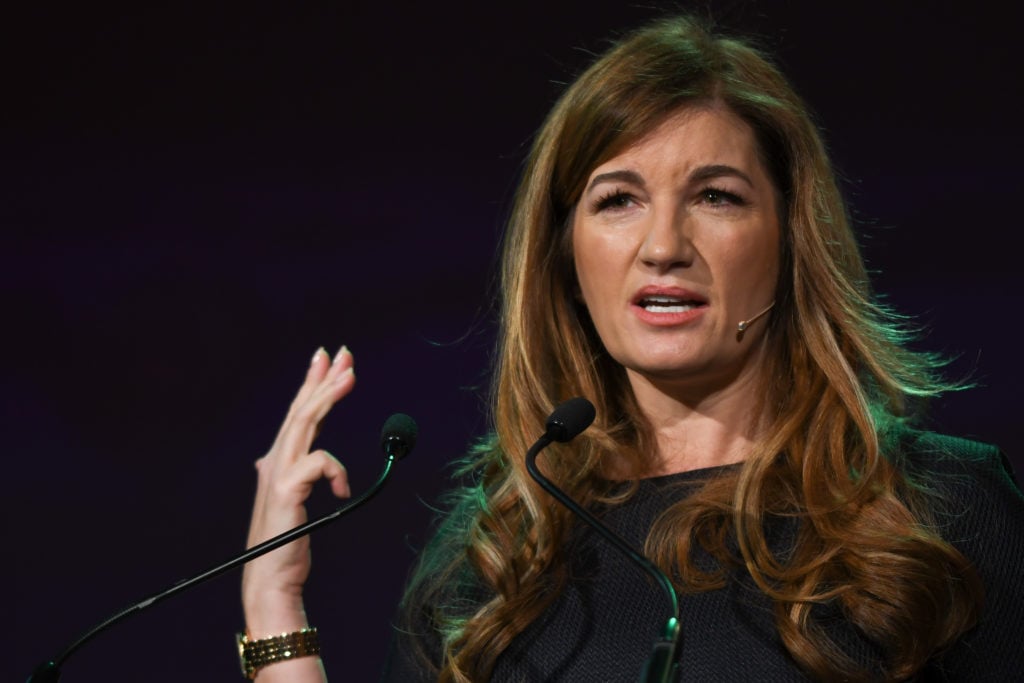Aston Villa and West Ham braced for £100m impact as Karren Brady warns of 'massive failure'

Today at 12:45 PM
Besides their claret and blue colourways, West Ham and Aston Villa have a number of commonalities in their history, their fanbases, and now their stance on one of the biggest issues of the day.
Aston Villa and West Ham are two of the biggest revenue generating clubs outside the so-called Big Six, earning £218m and £237m respectively in 2022-23, the last published financial year.
After both played in Europe again last season and are seeing the results of maturing commercial strategies, those figures are expected to rise when they release their 2023-24 accounts early next year.
But the two clubs do have a number of differences too.
For one, West Ham have more or less broken even in recent seasons financially speaking. Villa meanwhile have posted combined losses of over £300m in the last five years.
They have also seemingly adopted different stances on major issues at Premier League governance level.
West Ham gave evidence against Man City in their recent legal challenge against the Premier League’s associated party transaction rules for example, whereas Villa were in the opposite corner.
But on perhaps the biggest subject of them all, the executives of both clubs are in staunch agreement.
Government plan hated by Aston Villa and West Ham moves forward
An independent regulator for English football – which would operate similarly to how Ofcom or Ofwat do in the media and water sectors – has been in the pipeline for some time now.
Kickstarted by Tracey Crouch MP’s Fan-Led Review of Football Governance in the aftermath of the European Super League plot, the regulator has cross-party support.
A bill outlining the powers of the regulator was making its way through Parliament before the general election in May, which halted its progress.
Now, the new Labour government and minister for the Department of Culture, Media and Sport Lisa Nandy has brought the regulator back with a bang.
In news that has been well received by various supporter and pressure groups, a new beefed-up version of the regulator will have a number of additional powers compared to the previous iteration.
Perhaps most significantly, the regulator will have the power to review parachute payments – which are the £100m-plus payments relegated clubs bank from the Premier League – and potentially scale them back.
The EFL has long campaigned for the abolition of parachute payments, which it believes distort competition in the Championship.
Instead, they are arguing for a ‘New Deal’ for the EFL that would see more money (perhaps as much as 25 per cent) filter down from the Premier League and in a more equitable fashion.
West Ham and Aston Villa are among the vast majority of top flight clubs that are opposed to this, for the obvious reason that it would mean more money coming out of their pockets.
As quoted by the Express and Star in 2021, former CEO Christian Purslow outlined Villa’s stance: "We sat down six months ago and put down a £250m interest free loan facility… did Tesco give the corner shop a £250m loan facility?"
"The Premier League has really always been the source of funding for the rest of football and the danger here is killing the golden goose, if we over-regulate a highly successful financial and commercial operation. I think we have to be very careful as we contemplate reform that it does not ultimately damage the game.“
Similarly but far more recently, West Ham vice-chair Karren Brady wrote in her column for The Sun that independent regulators have reaped “massive failure” in every industry they have been tried in.
Why are Aston Villa and West Ham opposed to the independent regulator?
In short, businesses are very rarely in favour of increasing red tape.
One of the powers of the regulator will supposedly be to block owners from selling their clubs’ stadiums, just as Wes Edens and Nassef Sawiris sold Villa Park for £57m in 2020 as a PSR workaround.
That is indicative of why Villa and West Ham are opposed to the regulator – it will prevent them from acting with impunity and will have stronger backstop powers than the Premier League.
There is also the simple fact that it may not be in their raw financial interests, as illustrated by the row over parachute payments and the so-called ‘New Deal’ for the EFL.
